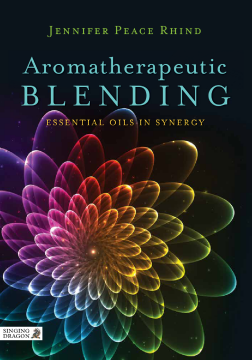
Additional Information
Book Details
Abstract
Synergistic blending is at the very core of aromatherapy practice. This book explores the concept of synergy and the evidence for its presence and significance, and provides practical guidance on how to build aromatherapeutic blends effectively and safely based on research evidence.
The author covers new and exciting developments in research into the use of essential oils, explores the merits and limitations of holistic, psychosensory and molecular approaches to blending and suggests effective ways of choosing the most suitable approach for individual clients. Evidence-based profiles of essential oils and absolutes are included and the comprehensive tables summarising their actions enable practitioners to identify easily potential contenders for synergistic blends.
Throughout the book, the author encourages students and practitioners of all levels to reflect on their practice, appraising the intended outcomes of their blends and treatment plans, so that they can emerge more knowledgeable and insightful practitioners.
The wealth of information on essential oils contained within this book make it an indispensable reference for all aromatherapists, and others interested in essential oils. Jennifer Rhind draws from her many years of study, experience and exploration, and combines her insights with a rigorous scientific understanding to shed new light on the actions and character of individual essential oils, together with ideas on how best to combine them into therapeutic blends. Highly recommended.
Gill Farrer-Halls, LLSA, MIFA, author of 'The Spirit in Aromatherapy' and 'The Aromatherapy Bible'
In Aromatherapeutic Blending, Jennifer Rhind explores this fascinating subject from a variety of angles, including up-to-date scientific data, the bio-chemical interaction of essential oils, individual case studies and her own experiential expertise. The material detailed in Part II, Essential Oils & Absolutes: Actions & Evidence, presents a unique contribution to aromatherapy literature and provides a valuable resource for all those involved in creating effective synergy blends. I can highly recommend this book as a well-researched reference source, as well as a practical guide to blending.
Julia Lawless, aromatherapist, author of 'The Encyclopedia of Essential Oils' and Managing Director of Aqua Oleum
[This book] gives the reader a tool, or method, on how to bring these aromas, or essential oils, together in a synergistic blend to address the physical and emotional issues we may experience during life (...) this book gives you some techniques for perfecting aromatherapy blends for such conditions as acne, pain, inflammation, infections, wounds, allergies, anxiety, and depression.
Sharon Falsetto
NAHA Aromatherapy Journal, Winter 2017.4
Rhind's enthusiastic approach makes for compelling reading from a scientific and holistic point of view. It is a useful functional aid for inspirational blending and a great reference for evidence-based practice. I would recommend it for students and well-versed aromatherapists alike and will be adding it to my recommended reading list for future aromatherapy students.
Rachel Langford
International Therapist
Aromatherapeutic Blending is a book that every aromatherapy practitioner should own and every aromatherapy educator should incorporate into their curriculum. The author takes you on a journey that encompasses and reviews various approaches to aromatherapetic blending and then compares and contrasts them. She provides a summary of relevant discussion of what we (as aromatherapists) have learned from many teachers and schools of thought over time; including various models of client assessment, blending and care. What is refreshing is that alongside the chemistry and biology, the author encourages the reader to discover (or renew) their relationship with plants and the personality and aromatic impact of the essential oils they provide. This book is not a "re-telling" of information, but rather a presentation of many approaches to provide a meaningful exploration, leaving it to the reader to determine what fits best into his/her holistic practice. In addition to providing current information to support the text, she provides key reflective points serving as a catalyst for a dynamic discussion between teacher and student or between colleagues. This is not a book for passive learners, but rather those who want to fully engage in the process of learning about the essential oils and their therapeutic benefits.
Lora Cantele, Editor/Publisher of The International Journal of Professional Holistic Aromatherapy
